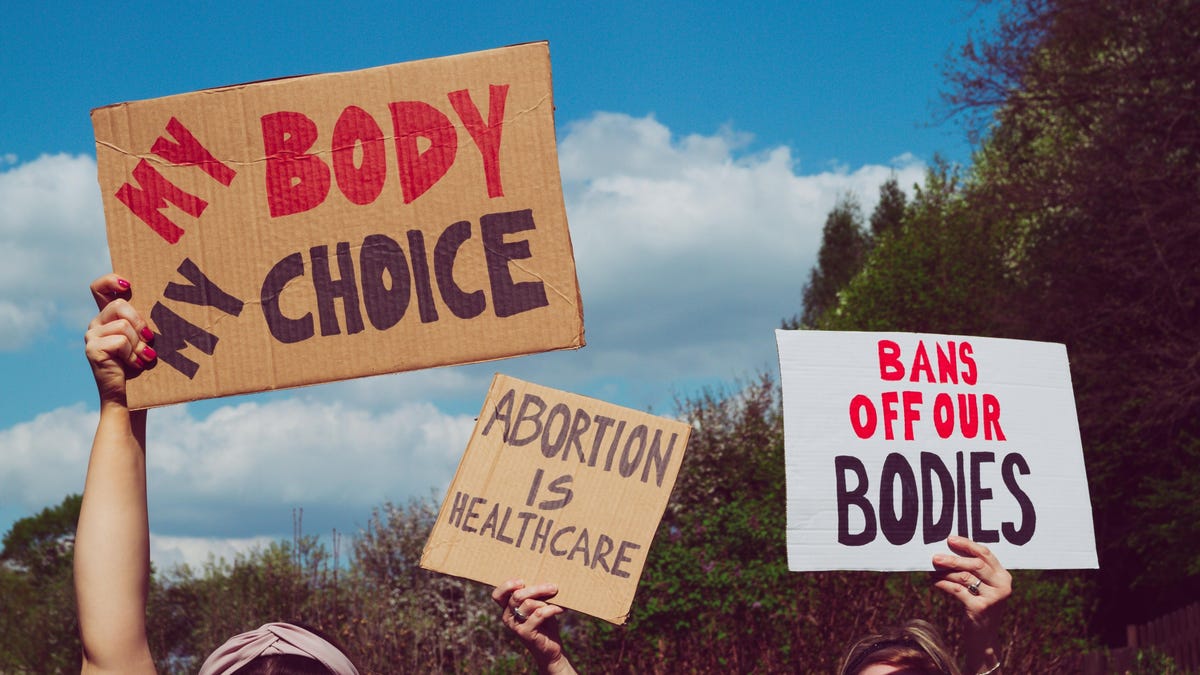
Restrictive abortion laws have caused a small but real climb in fatal violence committed against women, new research out Monday suggests. The study found that so-called TRAP laws were associated with an increased rate of murders among young girls and women committed by their intimate partners. The continued rise in tough abortion laws, fueled by the Supreme Court’s dismantling of Roe v. Wade in 2022, will likely contribute to further violence, the study authors argue.
The research was led by scientists at Tulane University in Louisiana. Their previous work had found that pregnant women or women who recently gave birth are more likely to be murdered than women of similar reproductive age, while also confirming homicide as the leading cause of maternal death in American women (though the study only focused on the most current data at the time, the trend has likely been true for decades).
Advertisement
Homicides are most frequently perpetrated by people in the victim’s life, and murders committed during pregnancy are often tied to domestic violence in particular. Partners (usually men) confronted with an unwanted pregnancy might become violent or worsen their violence toward the pregnant woman, for instance, while those pregnant might feel it even harder to attempt ending an abusive relationship.
With the rapid rise of restrictions designed to target the regulation of abortion providers, also known as TRAP laws (meaning “targeted regulation of abortion providers” laws), seen in recent years, the researchers wanted to get a better sense of how these laws may have affected the likelihood of these murders.
Advertisement
To do so, they analyzed nationwide death data collected by the Centers for Disease Control and Prevention as well as data on TRAP laws compiled by the Guttmacher Institute between 2014 to 2020. In total, 23 states had TRAP laws on the books at the time. The researchers focused specifically on states where up to five common TRAP laws had been enacted during that time period, comparing the number of homicides among girls and women between the ages of 10 to 44 before and after these laws came into effect. They also tried to control for other factors such as the differences in violent crime rates or the percentage of gun ownership between states.
During those years, there were at least 8,319 recorded homicides of girls and women in this age group. Of these, 41% were judged to involve intimate partner violence. The researchers found a modest but noticeable connection between TRAP laws and more of these murders. For each additional TRAP law enacted in a state, there was a 3.4% increase in homicides related to intimate partner violence, they estimated. And overall, across all states during those years, the team estimated that TRAP laws were associated with an additional two dozen murders of young girls and women tied to partner violence.
Advertisement
The study authors also noted that homicide rates among women ages 10 to 44 in general were associated with increased TRAP laws, suggesting that these laws have worsened violence against women in other ways. One possibility they bring up is that underage pregnant girls in these states still living at home are also now more likely to be killed by their families as well as their partners.
“In this analysis, we found that policies constraining women’s ability to obtain abortion care are associated with violent consequences for this population,” the researchers wrote in their paper, published Monday in the journal Health Affairs.
Advertisement
The team’s findings are estimates, so it’s possible that other researchers, using different variables or assumptions, might come up with different numbers. But this is far from the only piece of research suggesting that restrictive abortion laws are harmful to the women most impacted by them. Studies have linked the passing of these laws to higher rates of suicide among young women, for instance, or the worsening of health care provided by obstetrician-gynecologists.
Given that many states have since enacted even more restrictive abortion laws in the wake of the U.S. Supreme Court overturning Roe v. Wade in 2022, the researchers expect that things have and will continue to get worse without aggressive action to protect women’s reproductive rights.
Advertisement
“Protecting this right requires participation and accountability by policy makers responsible for repealing laws that constrain the degree to which women may exercise bodily autonomy. This is especially critical when doing so may prevent their violent death,” they wrote.
Services Marketplace – Listings, Bookings & Reviews